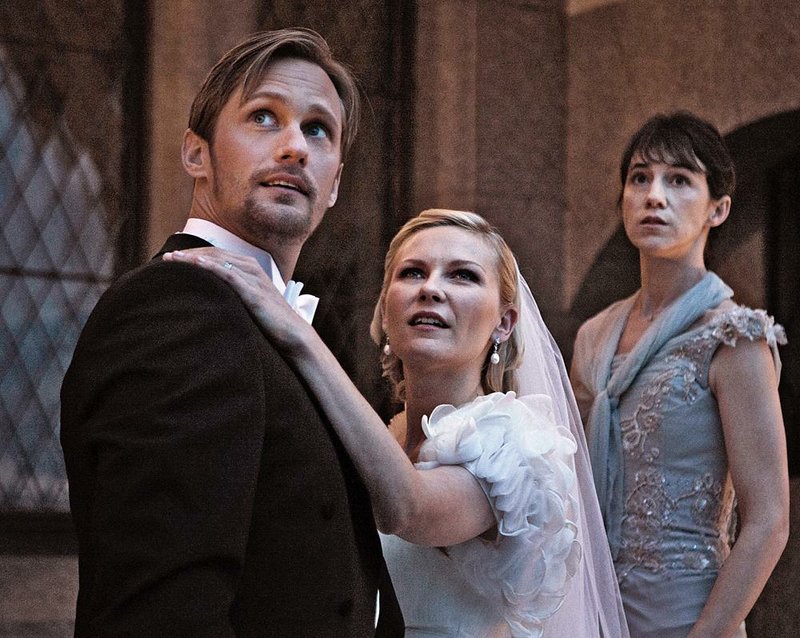LITTLE ROCK — Lars von Trier’s Melancholia is a devastatingly powerful film about how we are all going to die meaningless deaths and there’s nothing we can do about it.
That said, it’s one of the year’s best films and, in a perfect world with no deadlines and an unlimited amount of newsprint, I could unpack my soul while explicating and illuminating the film’s remarkable mise-en-scene - the beyond beautiful images it employs and the unnervingly accurate performances of the actors.
It is a work of art, and like a poem, the best, most concise description of the movie may be the movie itself. To say it another way, Melancholia is to a large degree “about” its own articulation: the visual and linguistic grammar that it employs to convey itself.
Or - let me put it this way. The first eight minutes of the movie are devoted to a few extraordinarily beautiful, dialogue-free, surreal tableaux featuring what will be the main characters interspersed with animated shots of a foreign planet colliding with what we take to be our own. This is all set to the strains of Wagner’s Tristan und Isolde, a Teutonic revisiting of a Nordic legend, of which Hitler was particularly fond (though there’s no time or real reason to go into von Trier’s reckless evocation of Nazism at this year’s Cannes Film Festival at this point - what do you expect from a professional provocateur?).
After this dazzling intro, we are deposited in medias res into the unbelievably opulent wedding reception of a doleful young bride named Justine (Kirsten Dunst) who is so woefully depressed and miserable that her breakdown seems inevitable. The reception is at a castle her brother-in-law John (Keifer Sutherland) and sister Claire (Charlotte Gainsbourg) run as a luxury resort. (The castle scenes were shot in Sweden, though the movie’s setting is nebulous.)
Dunst is so convincing, so preternaturally annoying in the role that you may feel as though you’ve actually experienced the entire eight- or nine-hour reception at her oh-so-delicately declining side. You might experience the entire first half of the film as a bad, short marriage.
The second half of the film has the bride (stripped bare of all encumbrances, including job and husband) back at the castle, to recuperate as the bright spot in the sky - now identified as the planet Melancholia - approaches its rendezvous with Earth. John, an amateur astronomer, assures that all of the experts are disputing rumors that doomsday is imminent. The planet will simply pass very near Earth and be very beautiful. Claire isn’t so certain, Justine is too damaged to care and John and Claire’s young son Leo (Cameron Spurr) is intrigued by the impending adventure.
Melancholia is a formally rigorous film, but it’s not particularly difficult to watch. It does have a way of burrowing into your subconscious, of lingering like an infection, or a scar. No, like something premeditated and permanent - a tattoo. An expiration date.
Melancholia 90 Cast: Kirsten Dunst, Charlotte Gainsbourg, Kiefer Sutherland, Alexander Skarsgard, Charlotte Rampling, Stellan Skarsgard, John Hurt Director: Lars von Trier Rating: R, for nudity, sexuality and language Running time: 136 minutes
MovieStyle, Pages 35 on 12/09/2011
